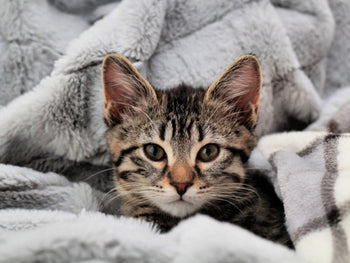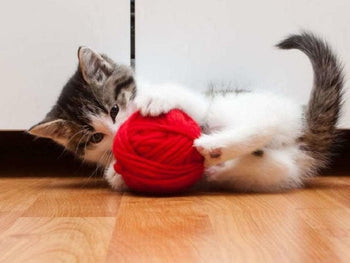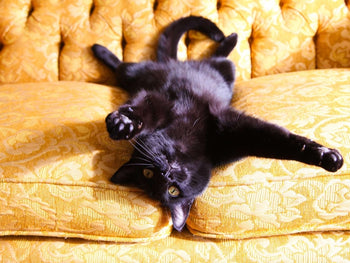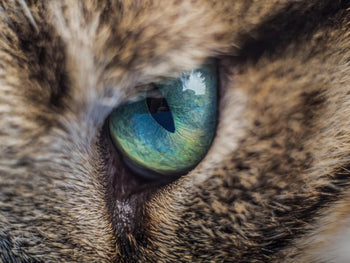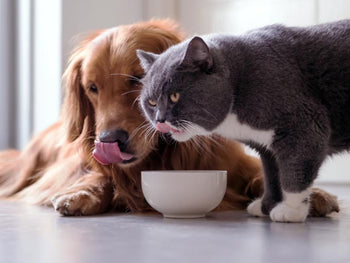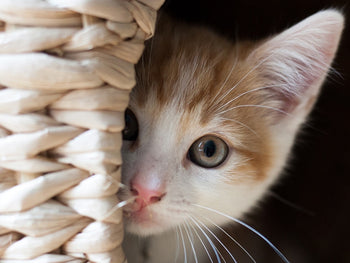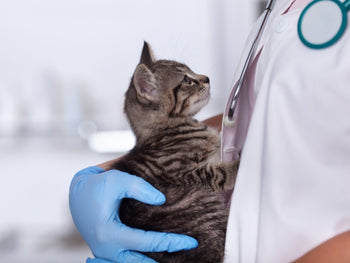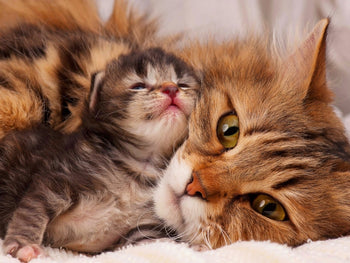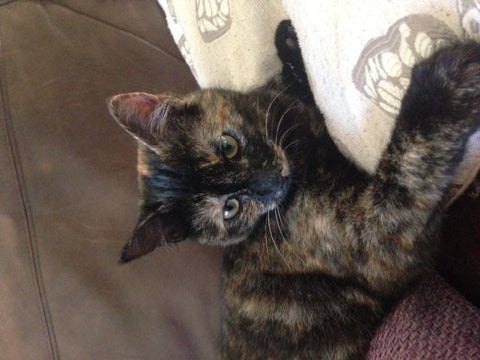
When it comes to raising cats, there are multiple issues that pet owners must worry about such as preparing the litter box, periodic vet checkup,... However, if you want to make sure that your cat is healthy, you should keep an eye on its weight. In fact, during examinations at veterinary clinics, people always check out the weight of the pets before reaching a conclusion. With that said, how much should a 6-month-old cat weigh on average? We all know that cats grow at a fairly quick rate but is there any way to tell if the weight of a cat is just right?
You have been raising a newborn kitten for half a year but you don't know if your pet's weight is normal or not? If that is so, this article should come in handy. Down below you would be introduced to everything that pet owners need to remember about the growth rate of cats. Once you understand the mechanism, it's a breeze to analyze the situation and come up with changes if necessary. Without their mother, kittens are quite fragile but as long as you take care of your fluffy friend, it should gain weight safely and steadily.
The Growth Of Cats: Summary

Before we get to the question of "how much should a 6-month-old cat weigh?", you have to firmly grasp the growth of cats first. By getting to know the growth rate of the pets, you should be able to determine if the bodyweight of your cat is sufficient.
Generally speaking, newborn kittens gain between ¼ and ½ ounce per day until they reach 1-month-old. The growth rate might slow down a bit after that but kittens would continue to gain around 1 pound a month. Needless to say, in order to sustain that kind of growth, it's of utmost importance that you keep yours warm, hydrated and well-fed. Kittens that fail to gain weight should receive a medical checkup from vets for health ailments, deformities and so on. In the case everything proceeds smoothly, your cat should get to the 6-month mark healthily.
At 6 months of age, your pet would look similar to an adult cat but it's highly likely that it still got room to grow. Taking the standard growth rate into account, newborn kittens should weight approximately 6 pounds after half a year but the number varies from breed to breed. Although cats could still get bigger, many already reach sexual maturity at 6 months of age. As a result, you have to think about spaying/neutering your cats at this time. Such operations are offered at most veterinary clinics and could be performed with minimal use of drugs so no worry.
A good method to check if your pet is receiving enough calories every day is to consult with the vets. Underweight as well as overweight cats run into a lot of issues in their life so it's best that you keep daily meals appropriate. In case you fail to see the vets, you should attempt to get a feel of the ribcage of your cat once in a while. When it comes to physically-fit cats, you could feel the presence of the ribcage without using too much force. On the other hand, if you could clearly feel the ribcage or have to push in to feel that, your cat needs a new diet.
Final Verdict: The Weight Depend On The Cat As Well

Despite the fact that virtually every kitten around the globe gains weight fast in the first 6 months of their life, different cats have different growth rates. Some cats out there could be as heavy as 8.5 pounds at 6 months of age while others barely reach 4 pounds. That is why to approach the question of "how much should a 6-month-old cat weigh?", you have to consider the breed of your cat. Once you suspect that something is wrong with the weight of your cat, don't hesitate to ask for expert assistance from the local vets.
Check us out for 10-week-old kittens' diet analysis and various cat tips & facts!
Feeding Cats: Tip And Tricks

Now you how to answer the question of "how much should a 6-month-old cat weigh?", let's check out some hints for feeding cats.
-
Be Strict With The Pet
The ancestors of cats have to hunt prey to acquire nutrients but modern-day cats simply have to wait around the feeding bowl for foods. However, domesticated cats like to eat regardless of what they feel (a habit they inherit from their ancestors when foods are hard to come by). Therefore, if you keep refilling the bowl, your pet would constantly take in calorie which leads to uncontrollable weight gain. So to avoid the scenario, be strict and don't give your cat more food than it needs to get. In addition to that, refrain from handing out treats indiscriminately.
-
Enforce A Meal-Feeding Diet
To many pet owners, it's convenient to fill the feeding bowl of their cat to the brim and leave it there for the pets. While that feeding method (know as free-feeding) requires no attention from the human, it often encourages excess consumption on the side of the cat. Hence, you should consider enforcing the meal-feeding method if you wish to regulate the calorie intake of your cat. Meal-feeding also provides cats with time to digest before consuming new foods which keep the stomach in good shape.
-
Always Go With Wet Foods
Compared to dry foods, wet foods have a shorter lifespan after you remove the lid. Moreover, feeding your cat wet foods means there is a good chance that the pet could make a big mess. Nonetheless, experts tend to recommend that you give your cat wet foods as they contain more proteins and fewer carbohydrates. Furthermore, the moist nature of wet foods offers the stomach of cats a big help when it comes to digestion.
Of course, feel free to mix in some dry foods now and then to keep your cat excited in mealtime.
Read more Healthy Cats Guide and find fun stuff on Cattybox !
